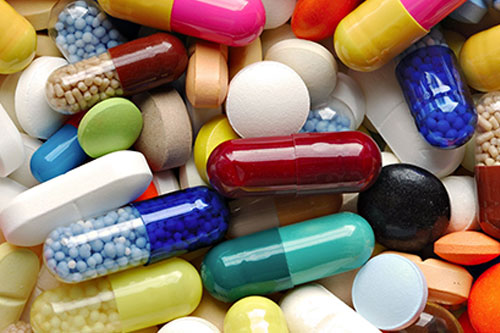Brace up to pay more for medicines GST regime
Dated 22nd July, 2016
 Medicine prices will rise about 4% in the new Goods and Service Tax (GST) regime.
Medicine prices will rise about 4% in the new Goods and Service Tax (GST) regime.
A recent report on GST by Nomura said that pharma companies will pay 80% more taxes on average medicines in the new indirect tax regime, which will ultimately be extracted from consumers.
A medicine starts its journey from active pharmaceutical ingredients (APIs) supplier to formulation manufacturer, then to the wholesaler and finally, to the consumer via the retailer. This chain includes value addition and indirect taxes like excise duty and Value Added Tax (VAT).
In the pharma sector, excise duty on raw materials is 12.5% and 6% on finished dosage while the VAT rate is 5%. In contrast, post GST, excise duty or VAT will be replaced by two kinds of taxes -- State GST (SGST) and Central GST (CGST).
Let us find the two different scenarios of the indirect tax system - a current indirect system and post GST regime. Taxation part will change in chain system.
At present, API suppliers and manufacturers pay excise duty and VAT, but wholesalers and retailers pay only VAT. These four stakeholders get refund or input credit on corresponding taxes.
Suppose output value or starting price of the raw ingredient of a medicine (APIs) is Rs 100. This APIs supplier price has included excise duty of Rs 12.5 (@12.5%) along with value-added tax (VAT) of Rs 5.6 (@ 5.6%). The APIs supplier will sell it to the manufacturer at the rate of Rs 118.10.
Manufacturer turns ingredient into a medicine. The manufacturer gets refund on VAT and excise, but since the manufacturer is an important player in terms of value addition, he charges Rs 100 as a value addition and total output value become Rs 200. Further, he has to add excise duty of Rs 12 and Rs 10.60 as a VAT, and, then medicine price for the wholesaler is Rs 222.60.
Similarly, wholesaler gets refund Rs 10.60 only on VAT not on excise duty. In the average course, he adds value to the cost of medicine at the rate of 10% and adds VAT amount of Rs 11.70. Thus, for the retailer the cost of the medicine becomes Rs 244.90. The retailer also gets Rs 11.70 refund and adds 18%, or Rs 42, as value addition. Retail shopkeeper included Rs 13.80 as VAT and for the consumer the bill rises up to Rs 288.90.
Now let's have a look at the medicine prices in GST regime if output value or starting price of the raw ingredient of a medicine (APIs) is Rs 100. And if GST rate will be 18% (SGST 9% +CGST 9%) then initial tax at APIs level will be Rs 18 and final price for the manufacturer will Rs 118.
The medicine manufacturer gets refund of both SGST and CGST amount and then charged 100% value addition on Rs 100 then total price become Rs 200 plus Rs 36 (SGST Rs 18+CGST Rs18). The final price of medicine for wholesale is now Rs 236.
The wholesaler follows a similar refund process and gets Rs 36 as input credit. He adds 10% value addition along with 18% GST (SGST Rs 19.80 plus CGST Rs 19.80) and medicine price jump to Rs 259.60 for retailers.
Similarly, the retailer also claims SGST and CGST refund. He too opts for 18% value addition on the cost after tax refund. Thus, the price of the medicine becomes Rs 259.60, in which retailer adds GST amount (SGST Rs 23.40 and CGST Rs 23.40) of Rs 46.80. Thus the total cost of medicine for consumer jumps to Rs 306.30.
Thus, the difference in the price of a medicine in the post- and pre-GST would be of Rs 17.40 (Rs 306.30-Rs 288.90). Again, in GST if the consumer is paying Rs 306.30 for a medicine, then he is paying Rs 46.70 as tax, whereas in existing indirect tax system he is paying Rs 25.80 as tax. However, if one considers offsets on service taxes on manufacturing goods even then the price of the medicine would be much higher than the existing price.
Sumit Dutt Majumder, former chairman of the Central Board of Excise and Customs, however, said, "It is expected that in the GST regime, some pharma products would attract reduced rate and some like life saving drugs will be totally exempted. That's the pattern followed internationally. Therefore, I do not expect pharma products to be more expensive in GST regime. Rather, like all other products, pharma prices will also eventually come down in the GST regime, as it is expected not to attract the standard rate of GST."
However, Nomura Research said that "under GST tax burden on services will be available for offset on taxes on manufacturing goods. Therefore, net increases in indirect tax and retail price will be lower than indicated above.
If we count some additional benefit on service charges like legal, R&D or advertisement then still the maximum retail price will be about 4% more of existing price".





